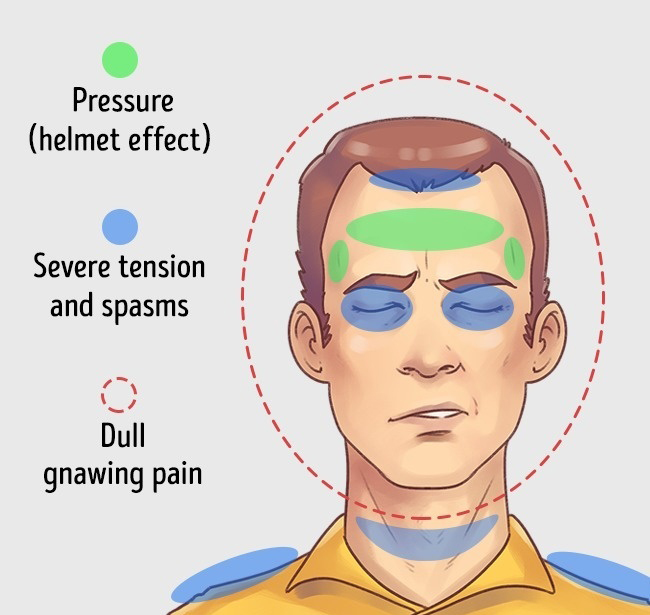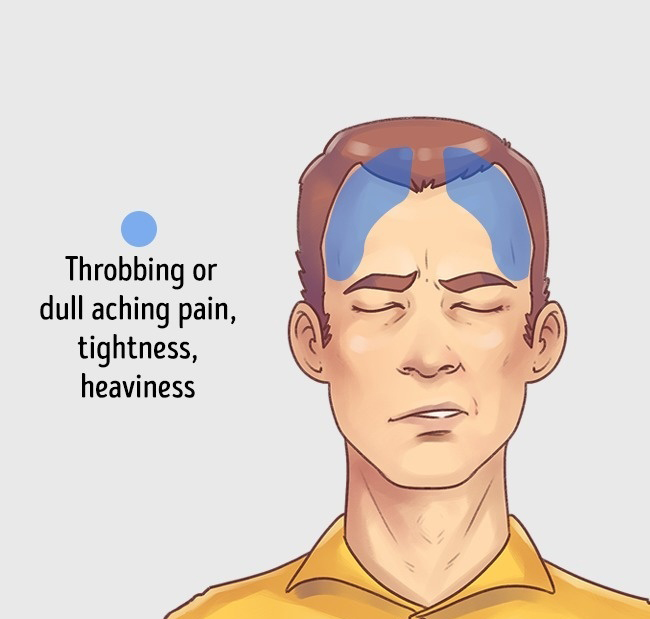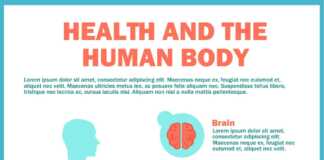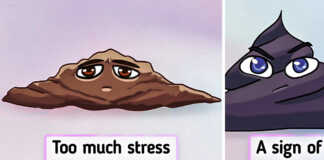Is there anyone in the world who has never had a headache? In some cases, we can solve this unpleasant problem by ourselves, but sometimes we must see a doctor immediately.
With this in mind, we have put together a detailed guide to help you identify the type of headache you have, as well as the best pain relief strategy.
What Are The Different Types of Headaches?
1. Tension Headache

This is the most common type of headache in the world: everyone has experienced it at least once in their life.
What is tension headache symptoms?
Usually, this is mild non-throbbing pain. Tension headaches usually cause a feeling of pressure that feels like you are wearing a tight band around your forehead. Most of the time, the intensity of the pain increases from morning to evening.
What causes tension headache symptoms?
Factors that seem to contribute to tension headaches are severe stress, fatigue, poor posture, and holding the head in an inappropriate position for a long time. Chronic tension headaches are rare and generally associated with head or neck injuries.
Treatment for a tension headache?
You can take any suitable pain reliever to get rid of a tension headache. However, this should only be used occasionally. If headaches occur frequently and last a long time, see your doctor. Also, try to be physically active, stretch your shoulders and neck regularly, and spend more time outdoors.
2. Sinus Headache

This type of headache is caused by sinusitis. It is often accompanied by fever, facial swelling, and tension in the forehead and cheekbones.
What is a sinus headache symptoms?
You will feel deep pressure and pain on the forehead in the eyebrow area and under the eyes. The pain usually worsens when you shake your head suddenly. You may also have a runny or stuffy nose and feel tired.
What can sinus headache cause?
Sinus headaches are caused by sinusitis. They are also a common complication after a cold or are the result of a seasonal allergy.
What is sinus headache treatment?
Sinus headaches rarely go away on their own. If you are allergic, antihistamines may help. In other cases, it is best to see a doctor who is likely to prescribe antibiotics.
3. Migraine

All the symptoms of this severe headache occur during a migraine attack that progresses in four main stages.
What is migraine caused by?
Migraine is often associated with a violation of metabolic processes and the dilation of blood vessels in the brain. A person may also inherit a genetic predisposition for the development of migraines.
What is migraine treatment?
There is currently no cure for migraine, although there are several treatments available to help alleviate symptoms. You should consult your doctor to choose the correct medication. Plus, regular exercise will help you significantly improve your health.
4. Cluster headache

Cluster headaches are rare and affect less than 1% of the population. They are five times more common in men than in women.
What is cluster headache symptom?
A cluster headache can stab behind or around the eyes, usually on one side of the head. It usually develops during sleep. Symptoms may also include red eyes, sensitivity to light, and tearing. The pain generally lasts from 15 minutes to 1 hour.
What is cluster headache cause?
Scientists don’t know exactly what causes cluster headaches. They are often associated with interruptions in the body’s biological clock.
What is cluster headache treatment?
Treating a cluster headache can be tricky because the pain comes and goes spontaneously at any time. Only a doctor can help you solve this problem.
5. Hangover

What is hangover caused by?
We hear many different versions of why people generally have a headache after drinking alcohol. One suggests that alcohol causes blood vessel dilation and affects serotonin levels in the body. Additionally, alcohol promotes water loss and dehydration, the main triggers of migraine.
What is the treatment for hangover headache?
The best remedy is to take a pain reliever, drink plenty of water, and get some sleep. You must take a hangover seriously. If you have a headache after consuming a small amount of alcohol, it may indicate that you have a mild form of migraine.
Based on materials from mayoclinic, headaches






